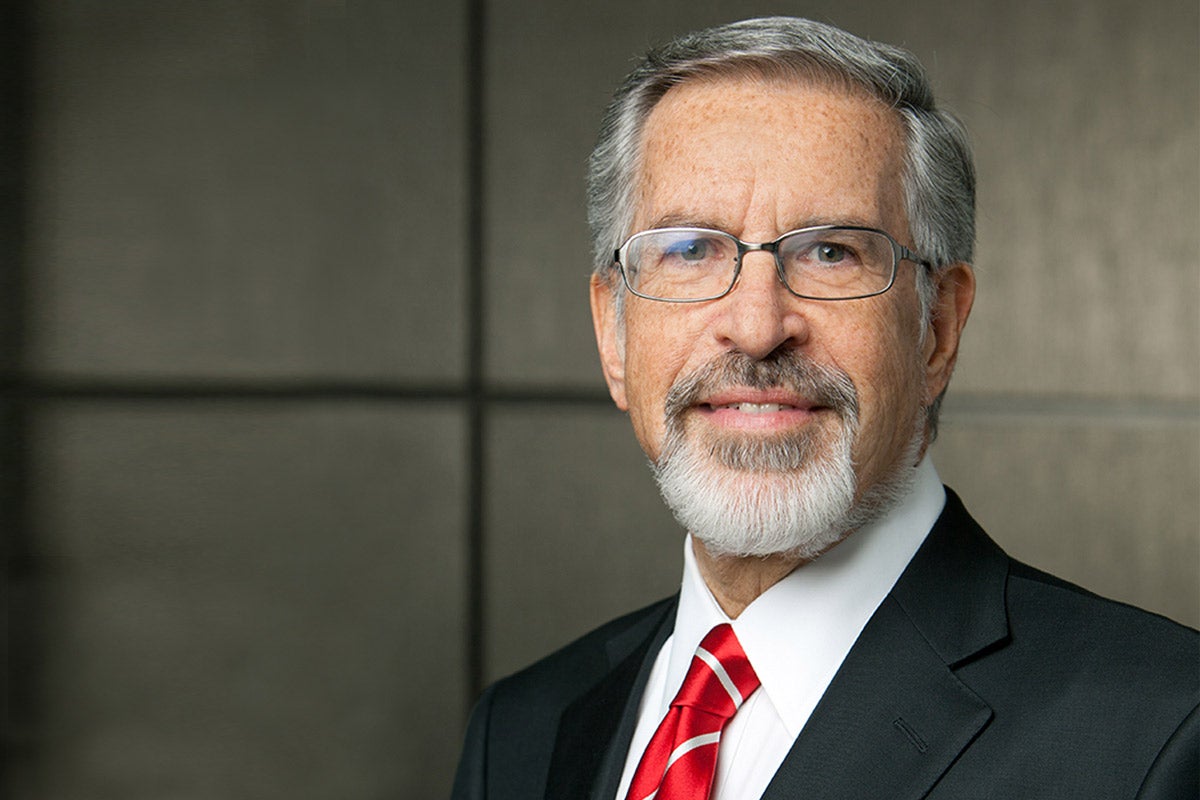USC, Brookings establish Leonard D. Schaeffer Initiative for Innovation in Health Policy
The joint initiative will examine the nation’s most pressing health care issues such as the cost of Medicare and the shaping of the Affordable Care Act
Leonard D. Schaeffer, a trustee of both USC and The Brookings Institution, has provided a gift of $4 million to establish the Leonard D. Schaeffer Initiative for Innovation in Health Policy, a partnership between the Leonard D. Schaeffer Center for Health Policy and Economics at USC and the Center for Health Policy at Brookings.

USC Professor Paul Ginsburg will direct the joint work of the new Schaeffer initiative, which aims to explore some of the nation’s most pressing health care problems, including the future of Medicare as costs continue to rise, shaping the Affordable Care Act to improve outcomes and maximizing the value of innovation in drugs and devices.
“Health care spending has soared to $3 trillion and massive disruptions are underway in America’s health care system,” Schaeffer said. “This new partnership will accelerate the development of evidence-based policies that are needed to successfully implement change in both the public and private sectors, evaluate results and understand the implications for the nation’s health and economy.”
The initiative aims to inform the national health care debate with evidence-based analysis leading to practical recommendations using the collaborative strengths of USC and Brookings.
Leonard Schaeffer has a profound and abiding commitment to education and to our university.
C. L. Max Nikias
“Leonard Schaeffer has a profound and abiding commitment to education and to our university. With this generous gift of support, he is building on his extraordinary legacy of innovation in health care,” USC President C. L. Max Nikias said. “To Leonard, the key to finding solutions to health challenges is to have institutions known for rigorous, independent research lead the way. We are grateful for his vision, guidance and friendship.”
Strobe Talbott, president of Brookings, added: “All of us at Brookings are most grateful for Leonard’s energy, engagement and support as a long-serving trustee. We now have another reason to be appreciative. The Leonard D. Schaeffer Initiative for Innovation in Health Policy gives us the basis to build on a promising bicoastal partnership with a world-class university, enhancing both institutions’ ability to play a significant role in improving health policy in the United States.”
Ginsburg’s chair
Ginsburg, a Harvard-trained economist and health policy expert who will continue as a professor at USC, has also been named the Leonard D. Schaeffer Chair in Health Policy Studies at Brookings, where he will also direct the Center for Health Policy.
Ginsburg is the former president of the Center for Studying Health System Change, an organization founded in 1995 to conduct research focused on changes to the organization, financing and delivery of health care in the United States. Previously, Ginsburg was the founding executive director of the Physician Payment Review Commission, a senior economist at RAND Corp., a deputy assistant director at the Congressional Budget Office and a faculty member of Duke and Michigan State universities.
Said Ginsburg: “I am excited about this opportunity to again focus intensively on health policy development and analysis. I am honored to have the enthusiastic support of both Brookings and the USC Schaeffer Center in being tapped to lead this joint initiative.”
Ginsburg has been named among the “100 Most Influential Persons in Health Care” eight times by Modern Healthcare, is a founding member of the National Academy of Social Insurance, a public trustee of the American Academy of Ophthalmology and serves on the Health Affairs editorial board. He will spend the majority of his time in Washington, D.C.
